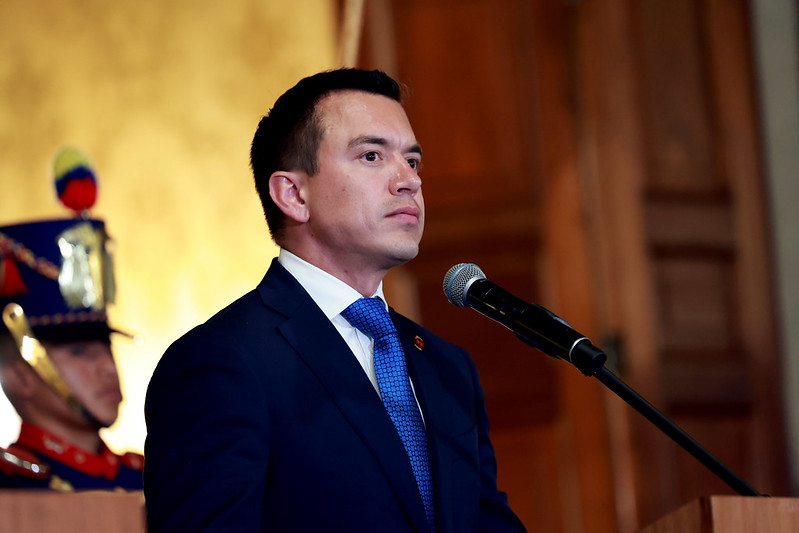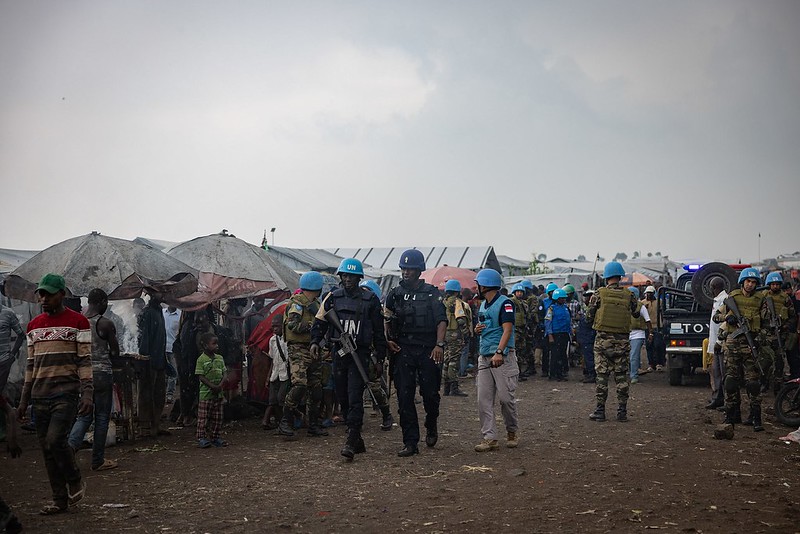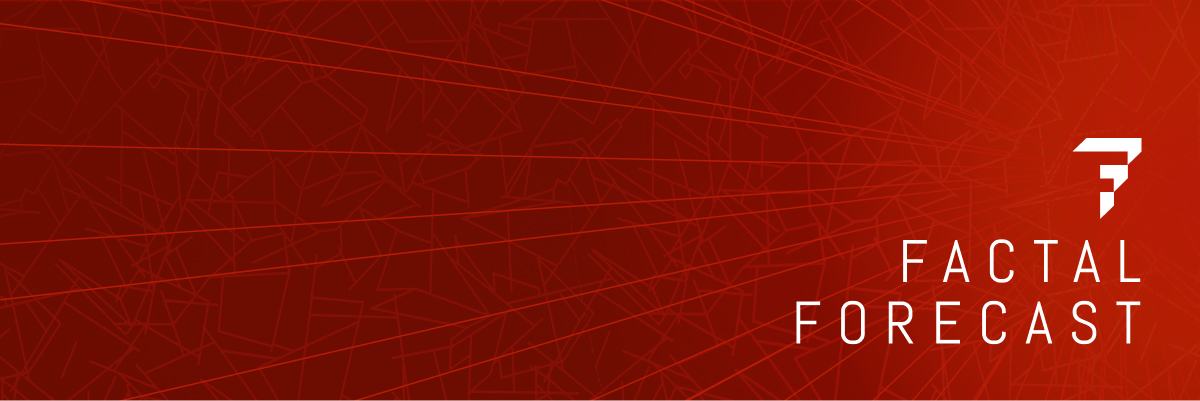Welcome to Factal Forecast, a look at the week’s biggest stories from the editors at Factal.
We publish our forward-looking note each Thursday to help you get a jump-start on the week ahead.
Ecuadorian President Daniel Noboa ordered a border closure this weekend as he seeks re-election in Sunday’s election. In this week’s Factal Forecast podcast, Senior Editor Jimmy Lovaas and Editor Jeff Landset discuss Noboa’s stated justification for the border closure as well as his main challenger – Luisa Gonzalez, the protege of a former president and socialist who is currently living in exile.
Listen now or download on your favorite platform.
Week of February 7-14
A Look Ahead
Feb. 8 – Baltic countries disconnect from Russia’s BRELL grid
Latvia, Estonia and Lithuania will disconnect from Soviet-era Russian BRELL power grid on Saturday in a historic shift to the European common grid.
What’s happened so far
The Baltic states signed an agreement in 2018 to connect their power grids to the European Union following a decade of negotiations. The European Union has footed three-fourths of the cost – about $1.3 billion – to prepare the region, which still relies on Russia to balance the grid, to decouple from the Russia-Belarus joint grid.
The impact
Although the shift has been over a decade in the making, the threat to the Baltic energy system has only increased since Russia’s invasion of Ukraine in 2022, making independence in the energy supply sector a priority for the region. The region is now bracing for any potential retaliation from Russia as officials prepare for any and all risk scenarios, including cyber attacks.
Feb. 9 – Ecuador elections

Ecuadorian President Daniel Noboa is asking voters for a full 4-year term on Sunday and hoping to do so without another runoff election.
What’s happened so far
In May 2023, then-President Guillermo Lasso used a constitutional tool to dissolve the National Assembly as a way to avoid impeachment proceedings. A snap election was scheduled for August 2023 to serve out the remaining 18 months of the presidential and legislative terms. The final days of the race were overshadowed by the assassination of candidate Fernando Villavicencio in Quito, highlighting the voters’ concerns of crime and narcopolitics. Noboa advanced to the second round with 24% of the vote, trailing only Luisa González, whose mentor was former president Rafael Correa, the leftist living in exile in Belgium over a corruption conviction. In the October runoff, the 35-year-old Noboa won with 52% of the vote and became the youngest president in the country’s history.
The impact
Noboa and González are once again the main candidates running for president this weekend. Noboa, the son of a billionaire, has won some supporters for cracking down on gangs. He has even closed the borders and militarized the ports leading up to the election. However, he’s drawn criticism for alleged abuses by the armed forces as well as an energy crisis that led to rolling blackouts. González is campaigning on diversifying with renewable energy as well as using AI to help police fight crime. Polls show a tight race, with no candidate tracking above 50%. If that holds true, a run-off will be scheduled for April 13.
Feb. 9 – Kosovo elections
On Sunday, Citizens will vote in Kosovo’s ninth parliamentary election since its 2008 declaration of independence. Current Prime Minister Albin Kurti and his Vetevendosje party are aiming to clinch a third term in power but face stiff opposition from the Democratic Party of Kosovo (PDK) and Democratic League of Kosovo (LDK).
What’s happened so far
A total of 27 political groupings will vie for the 120 seats up for grabs in Kosovo’s ethnic Albanian dominated parliament. The assembly reserves 20 seats for representatives of Kosovo’s minorities which include the Serb, Bosniak, Turkish, Roma and Gorani communities. Relations between the central government and the Serb-majority municipalities in northern Kosovo remain tense as the Kurti administration has continued to carry out raids to close down so-called Serb parallel institutions in the region. Ethnic Serbs have repeatedly protested the dismantling of these institutions, while the central Kosovo government has branded them illegal. The institutions are a vestige of when Kosovo was a Serbian province and their closure has drawn condemnation from the Serbian government which does not recognize Kosovo’s independence.
The impact
NATO-led international peacekeepers KFOR will bolster their presence in Kosovo ahead of the election with 200 additional Italian troops as concerns remain over inter-ethnic violence and unrest. A victory for Kurti is likely to mean a continuation of the policy of dismantling ethnically Serb institutions, further fueling ethnic tensions in the northern municipalities and angering Belgrade.
Factal is real-time, verified breaking news
Tens of thousands of real-time, verified incidents across the globe that help keep people safe. Briefings and The Debrief for members and the general public to know more. Innovative tools on our platform so analysts act faster when time lost increases risks.
See what we did last year and learn how 100s of global safety teams use Factal.
Feb. 9 – Super Bowl
The Philadelphia Eagles and Kansas City Chiefs will meet in Super Bowl LIX on Sunday in New Orleans.
What’s happened so far
The game will be a rematch of Super Bowl LVII from two years ago as the Chiefs attempt to make NFL history by being the first team to win three Super Bowls in a row. Kendrick Lamar will headline the halftime show. Per usual, there will be heightened security around New Orleans for the game, with the Secret Service also involved in planning for President Donald Trump’s attendance.
The impact
Casting a shadow over the New Orleans Super Bowl is the Jan. 1 ramming attack along Bourbon Street perpetrated by an Islamic State-inspired attacker that killed 14 people. The attack led to the postponement of the Sugar Bowl which was set to be played in New Orleans that day, though officials say there are no credible threats to the Super Bowl and that they have been working alongside local law enforcement to bolster security ahead of the big game.
Feb. 10 – France hosts Artificial Intelligence Action Summit
Representatives from dozens of countries and international institutions are expected to gather in Paris starting Monday for the Artificial Intelligence Action Summit, co-hosted by France and India.
What’s happened so far
The recent AI boom has fueled innovation, but also sparked fears about the future of humanity itself. At the same time, no international regulations yet exist regarding the development of the rapidly evolving technology. The AI summit comes after the debut of China’s DeepSeek, which has roiled financial markets and upended the AI industry. It follows AI summits hosted last year by South Korea and in 2023 by the United Kingdom.
The impact
Organizers have outlined three key objectives of the summit: providing a range of users with access to “independent, safe and reliable AI,” more environmentally friendly AI and ensuring that global governance of the technology is effective and inclusive. France has said it hopes to launch a “European awakening on AI” with Monday’s summit. Among those slated to attend are U.S. Vice President JD Vance, Indian Prime Minister Narendra Modi, Chinese Vice Premier Ding Xuexiang, European Union President Ursula von der Leyen and German Chancellor Olaf Scholz. Modi is expected to push for the creation of an international framework for digital technologies.
Feb. 13 – France to hold conference on Syria
Senior representatives from multiple countries, including Turkey, are expected to attend a conference starting Thursday on Syria’s pathway to a functional and possibly pluralistic civil government after more than a decade of war and sectarian and ethnic division.
What’s happened so far
Erstwhile rebel leader Ahmed al-Sharaa was named president of the transitional government weeks after a patchwork of militias ousted the Bashar al-Assad regime. The interim government scrapped the previous constitution and dissolved all arms of the previous administration, including the military. The Paris conference is expected to build on the goals outlined in similar meetings in Jordan and Saudi Arabia.
The impact
Syria’s new government is struggling with rebuilding infrastructure and bringing peace and order to the country. It needs large amounts of fiscal and developmental assistance, all the while trying to unite a country with deep ideological fractures worsened by years of foreign proxy wars. Building a new military hinges on the de facto leadership’s ability to juggle the US-backed Kurdish Syrian Democratic Forces and the Turkey-backed militias while also tamping down on retribution against the previous regime’s Iran-backed, mostly Shia forces.
Feb. 15 – African Union Summit in Addis Ababa, Ethiopia
The 38th summit of the African Union will take place in Addis Ababa, Ethiopia starting Saturday, centered on reparatory justice and racial healing.
What’s happened so far
The summit comes at a time of profound global change amid an anti-incumbent wave that, most notably, saw Donald Trump storm back into office, which will likely see a contraction in US foreign engagements – a vacuum that China has eagerly stepped into. On the continent, Mali, Burkina Faso, and Niger have continued their inward turn by withdrawing from ECOWAS, the conflict in the DR Congo with Rwanda-backed M23 is at a rolling boil, and the Union’s mission to Somalia entered a new phase.
The impact
The summit is one of the primary forums for intergovernmental action in Africa. The last two years have seen mini-summits on the DR Congo situation just before the meeting, and with the situation there only worsening, the Union’s Peace and Security Committee is slated to meet on the summit’s margins this year. The African Union has also grown in importance following the formal withdrawal of the Sahel juntas from ECOWAS, fracturing intergovernmental cooperation in a militancy-torn region.
What Else Matters

Rebels announce ceasefire in DR Congo
M23 rebels declare unilateral ceasefire in DR Congo: The political wing of the Rwanda-backed M23 rebel movement declared a unilateral humanitarian ceasefire this week in the northeast Democratic Republic of the Congo. In the announcement, M23 also claimed they have no intention of seizing the city of Bukavu, despite the group taking territory less than 50 miles away in last week’s offensive that saw the fall of regional capital Goma. The DR Congo government has not publicly agreed to the ceasefire, and local media has reported on apparent attempts to take back M23-controlled territory in the South Kivu region. Previous bilateral ceasefire agreements have failed, in part due to pro-government Wazalendo militias. The supposed ceasefire comes with news of some normality returning in the city of Goma as the M23 establish a government to manage the border with Rwanda, the local university and the airport.
Watch for: Western diplomatic pressure on Rwanda has increased in the past week, with the United Kingdom, Belgium and Germany suspending aid and trade agreements with Kigali. Violent riots sparked by the offensive have cooled down in Kinshasa, but monitors report ongoing restrictions on social media websites and app stores. Bellicose rhetoric between the leaders of Rwanda and South Africa has been ratcheted up, as South African President Cyril Ramaphosa reaffirms his commitment to the Southern African Development Community fighting force in the northeast DR Congo. Finally, the Allied Democratic Forces militant group has remained active in areas north of M23’s current territory, with multiple massacres attributed to the group since last week.
Trump administration tariffs
A 10 percent tariff on Chinese imports went into effect on Tuesday, while threatened 25 percent duties on Canadian and Mexican goods have been paused for 30 days as President Donald Trump seeks to extract concessions from trading partners in the opening weeks of his second term. Canadian Prime Minister Justin Trudeau promised to appoint a fentanyl “czar” and list Mexican cartels as terrorists under Canadian law while reaffirming his country’s commitment to a $1.3 billion border security plan, while Mexican President Claudia Sheinbaum said her government had agreed to send 10,000 national guard troops to the border to boost anti-drug trafficking efforts.
Watch for: While China has introduced its own raft of targeted tariffs on an estimated $20 billion worth of US goods, including a 15 percent levy on coal and liquified natural gas imports and 10 percent for crude oil, farm equipment, and some cars, retaliatory measures by Canada and Mexico loom if negotiations falter with those countries. In the wake of his election win, Trump also threatened to impose tariffs on the European Union if the bloc did not make a “large scale purchase of our oil and gas.”
Extended Outlook
What’s on our radar in the coming weeks…
Feb. 8-15
Feb. 8
- Baltic countries disconnect from Russia’s BRELL grid
- Southern African Development Community meeting on Dr Congo
Feb. 9
- Kosovo elections
- Ecuador elections
- Liechtenstein national parliament elections
- Super Bowl
- Palestinians will be able to return to north Gaza through Salah ad-Deen road
Feb. 9
- Amazon employees at a North Carolina warehouse will vote on unionization
- Meta plans to cut 5 percent of its workers
- France hosts Artificial Intelligence Action Summit
Feb. 13
- France to hold conference on Syria
Feb. 14
- Munich Security Conference begins
Feb. 15
- Togo’s first senatorial election
Feb. 16-22
Feb. 17
- Indictment against United Healthcare CEO shooter
Feb. 18
- Lebanon ceasefire ends
- Possible Trump oil and gas tariffs
Feb 19
- Trump’s proposed date to end birthright citizenship
Feb. 23-March 1
Feb. 23
- Germany elections
- Funeral for Hezbollah’s Nasrallah
Feb. 25
- EPA deadline to remove hazardous material from Los Angeles fires
Feb. 27
- Ontario elections
March 1
- Possible end of U.S. tariff delay
- Agreed date to return gas supplies between Moldova and Transnistria
March 2-8
March 4
- Trump to address Congress
- Steve Bannon border wall trial
- Mardi Gras
Thanks for reading! If you would like the Factal Forecast in your inbox, you can sign up for free.
Factal gives companies the facts they need in real time to protect people, avoid disruptions and drive automation when the unexpected happens.
Try Factal for free or talk with our sales team (sales@factal.com) for a demo.

